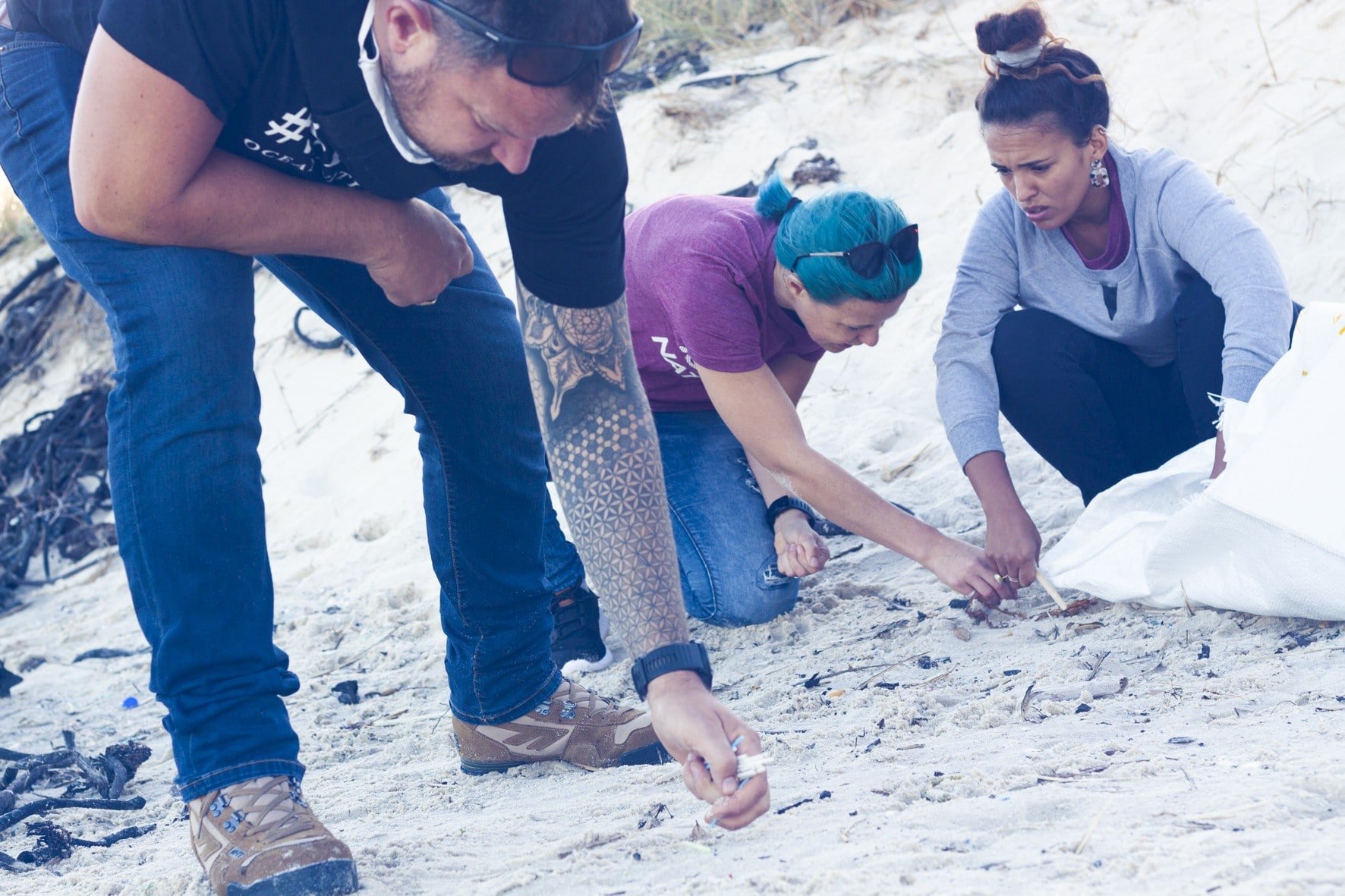We wish it was recycling day everyday, but we’re pretty happy to have environmental holidays as
a reminder that kicks everybody into gear – hopefully sustainably so. As we celebrate world
recycling day today, we excitedly finalise the relaunch of our Beach Clean Events in April 2021.
COVID set us back but it hasn’t stopped us!
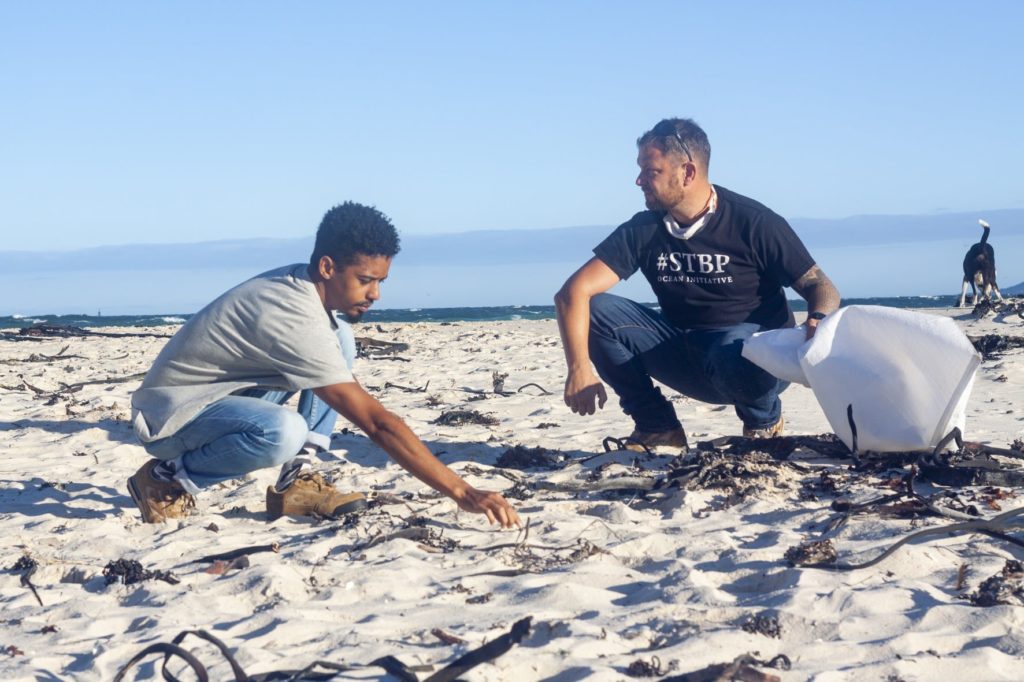
A huge part of our vision has always been to inspire the attendees of our beach cleans to recycle
and get interested in local resources, waste management and of course more mindful
consumption to reduce the negative impact on our precious planet and its resources.
To know where we’re going we need to understand the past, reflect on the present and urgently
get creative about our future on this shared planet.
THE PAST
The 1960’s dawned an era of intense plastic use after its invention in 1907. Suddenly there were
trendy new ways to preserve food and attractively package goods. Over a quick few decades
composite technology changed how we produced textiles and wearable merchandise as well.
What we didn’t factor in was how we’d deal with our global waste. We certainly didn’t factor in the
ways consumerism would impact the rate of production – the high emissions from plastic and
other manufacturing quickly compounded and created the global climate crisis we face today.
Progress became addiction and addiction became a norm. Companies fell into prioritising
infrastructure for manufacturing which was good (read: bad) business while governments made
no real strides in matching the recycling infrastructure and legislation needed to deal with the
technological innovation we so praised.
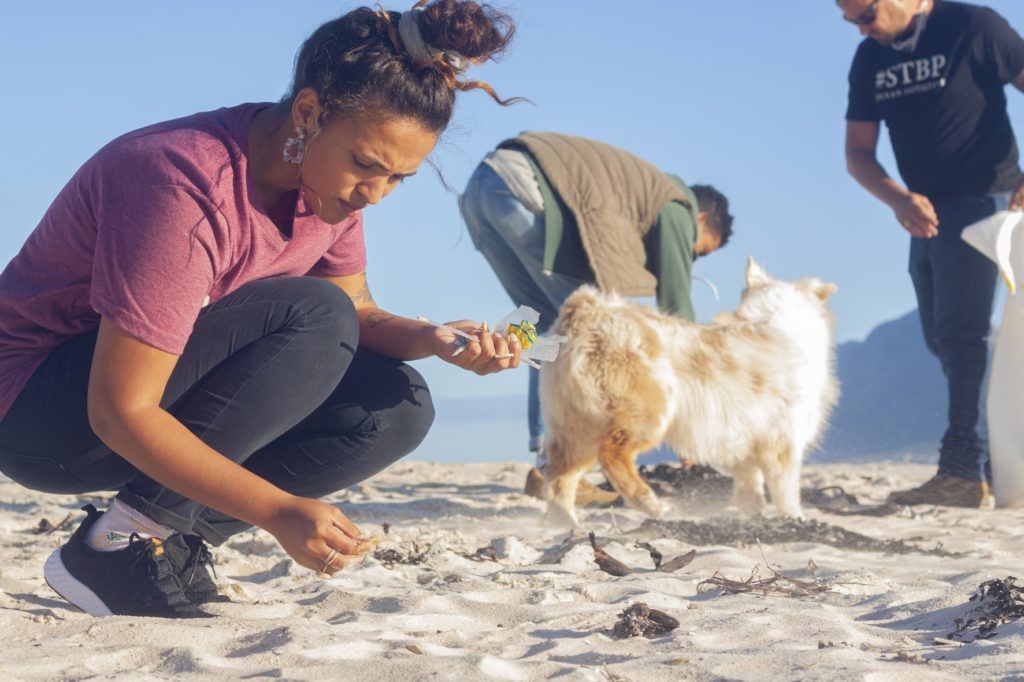
“I believe the answers to finding more ways to recycle existing plastics are our there, these efforts
will allow us to harness the highly recyclable nature of many plastics while maintaining their
structural integrity and value. By focusing on recycling infrastructure and new methods of reusing
existing sources of plastics, we reduce and work towards eliminating the need to mine the fossil
fuels used to manufacture plastic. This relates to fast fashion as much, if not more so, the typically
known plastics that garner the most attention,” says Tash Krauss, a passionate advocate for
circular economy and rethinking dangerous green washed alternatives.
THE PRESENT
It’s the year 2021 – decades of toxic consumer goods and a pandemic later, we have moved far
from a time where goods and fashion were slower, of a higher quality and linked to necessity not
high levels of convenience. The disconnect with the environment is clearer than ever as we
continue producing plastics and single-use items that are simply not being recycled despite some
infrastructure existing to deal with at least some of our plastic waste.
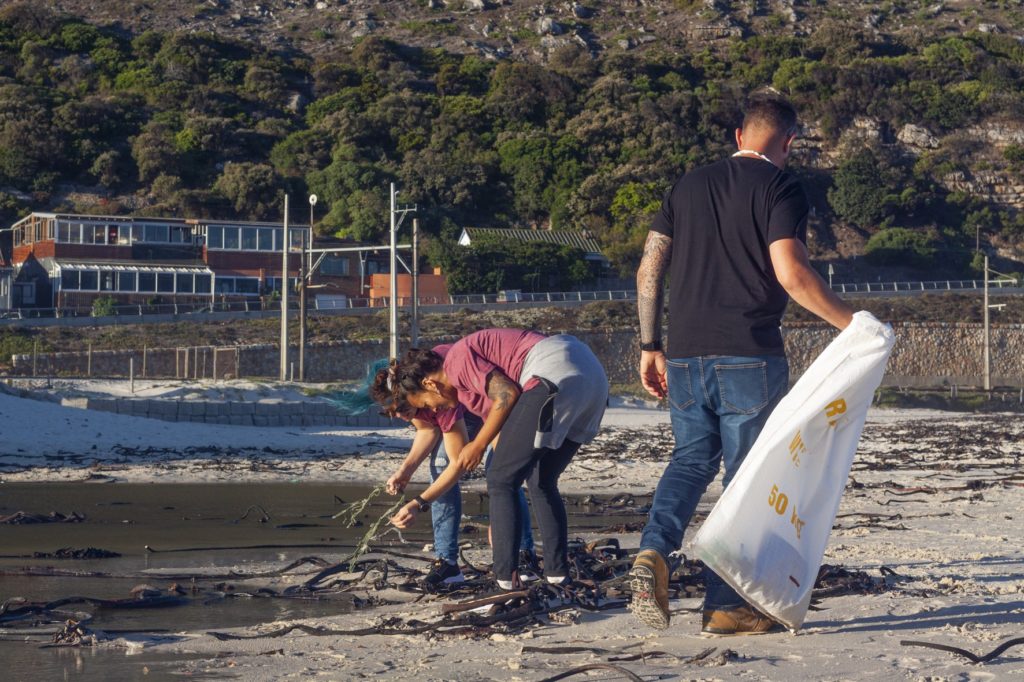
What’s more concerning is our local statistics indicating that as little as 9% of recyclable waste is
recycled in South Africa. While not all harmful consumption takes place at our coasts, we are
seeing the devastating reality of how our decisions everywhere including inland, have affected our
oceans. Our beaches and rivers have become the poster images of our lack of forethought with
more clothing and fashion items rearing its head at beach and river cleans.
Technology has the potential to increase the rate of collection of waste off our beaches and in
other wild and severely affected natural spaces. We need to be more receptive and conscious of
the reality that the damage we’ve done. We need creative and efficient help to start really
scratching the surface of mitigation, repurposing waste on a corporate level would open up a
world of possibilities that include the added benefit of assisting unemployment in countries like
South Africa.
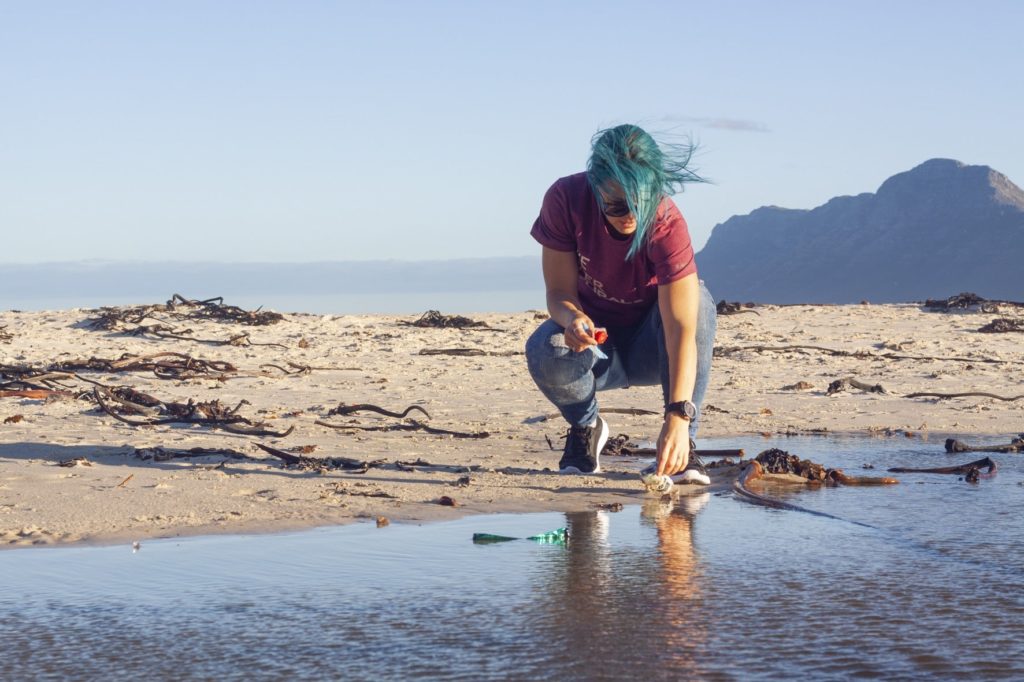
“STBP Ocean Tech was born from the idea of creating an eye-catching human-assisted beach
‘robot’ to speed up the collection of nurdles and micro-plastics from coastlines and grassy areas
where small objects take ages to pick out by hand. The Envirobuggy and future projects aim to raise awareness to what healthy innovation could look like. It is only one out of the hundreds of
solutions we need to be adopting in our daily lives, a multifaceted crisis needs a multifaceted
solution which is no small feat. We need more innovators using waste to take this vision to the
next level, it’s complex but needs to be done,” says Chris Krauss, the founder of STBP Ocean
Tech.
THE FUTURE
We have a decade or less to save what’s left of our planet and if that scares you, it’s the most
healthy reaction. The good news is that many designers, artists and organisations share our
passion for responsible innovation.
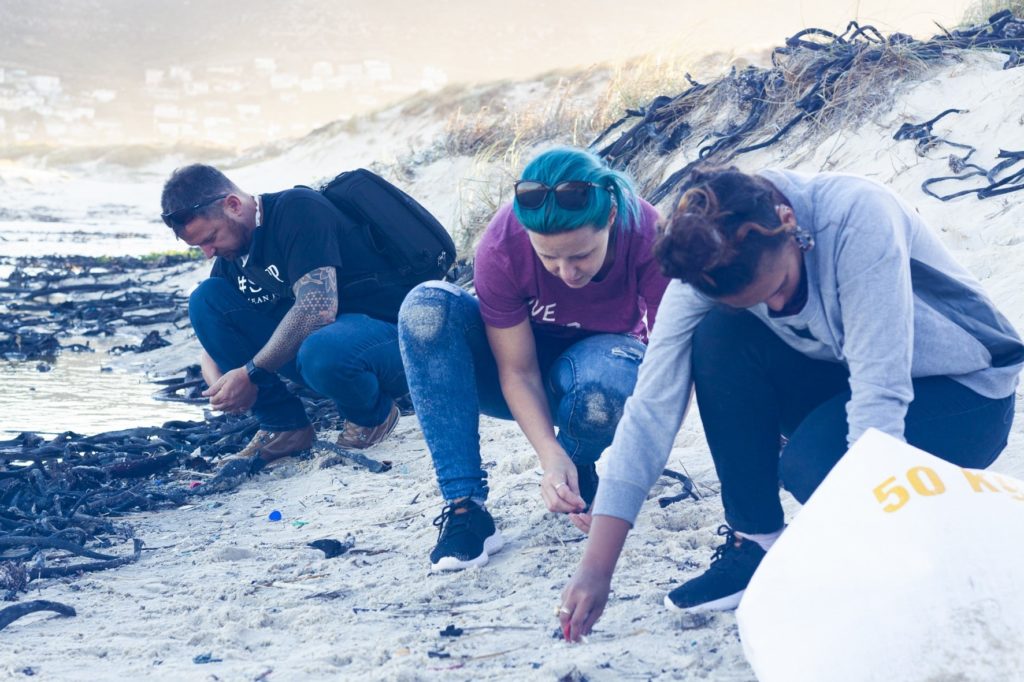
“I envision a world where my sneaker collection doesn’t come at the price of the ocean I love and
share with others. Where every home recycles and composts as second nature and every child
uses their hands to growth things in their backyard. I want to share my love for nature the way my
grandad did with me,” says Juneid Petersen, a freediver and avid adventurer.
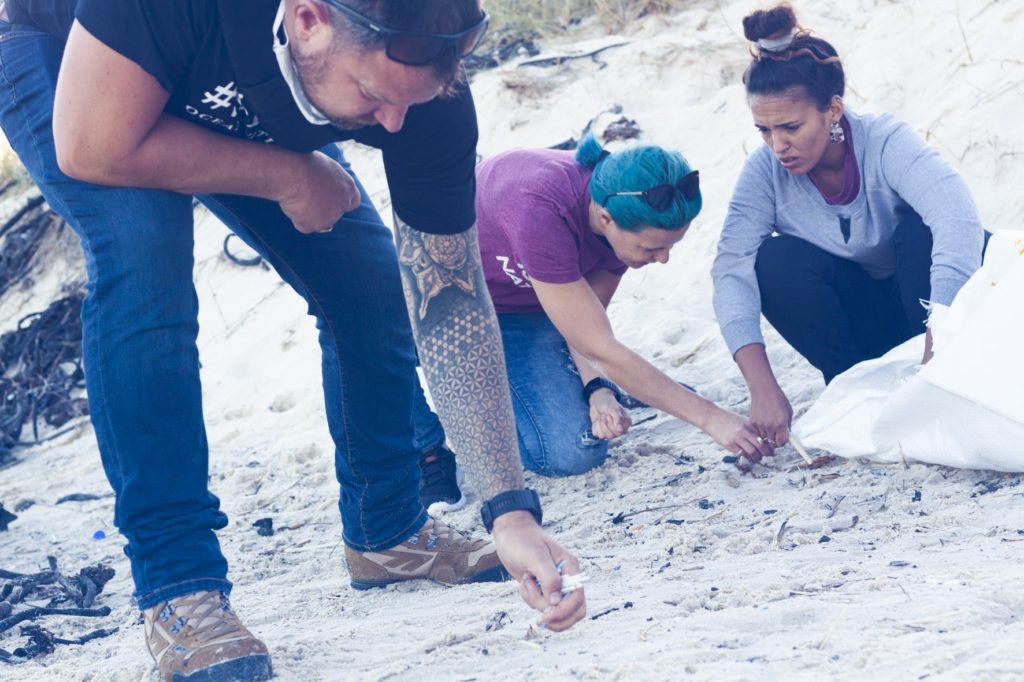
While the climate crisis is urgent, figuring out methods of eliminating the bulk of plastic won’t be
easy. Right now every piece of plastic we can add to the recycling stream is a small victory. Every
product made of recycled materials is a victory. Every corporate supporting our work and
assisting us in facilitating campaigns, events and equipping the youth for future opportunities is a
victory. We thank you and take your hand as we celebrate the endless value of recycling as the
first step to a future where nature is part of us rather than apart from us.
#SeaTheBiggerPicture is hosting 6 public beach cleans in 2021, with COVID protocols in place for
your and our safety. Join us at:
- The Black River Mouth on the 17th of April
- Fish Hoek Beach on the 15th of May
- Kalk Bay Harbour for World Oceans Day on the 5th of June
- Millers Point to celebrate #STBP’s birthday on the 24th of July
- The Black River Mouth on the 21st of August
- Hout Bay Beach & Harbour for International Coastal Clean Up Day on the 18th September
- The Black River Mouth on the 20th November
